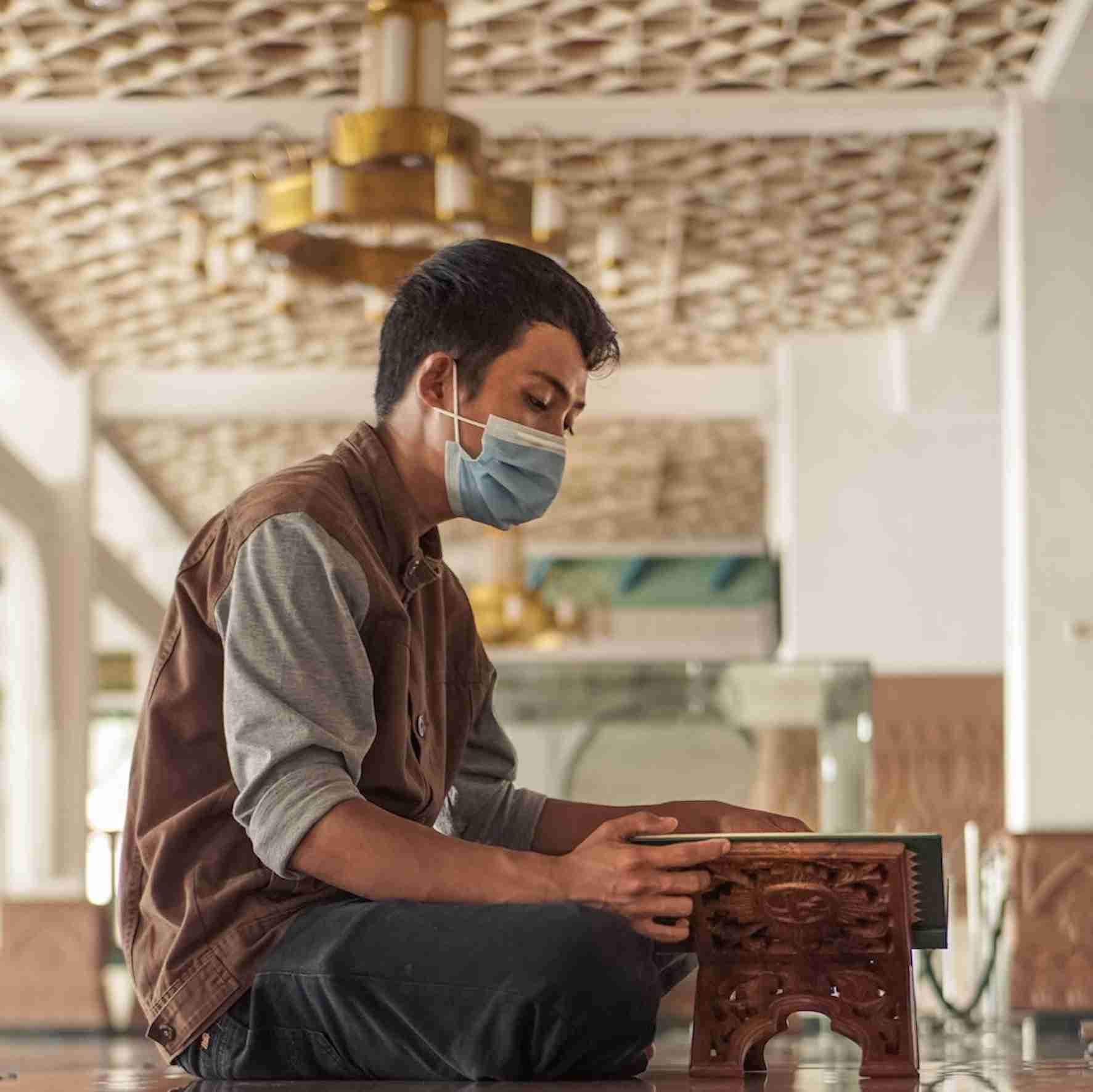Covid -19 changed our world and way of life as we know it and Ramadan celebrations are no exception to this shift. A social media listening survey conducted by Quantum Consumer Solutions shows evidence of a shift in consumer’s sentiment and behaviour over the last 2 pandemic locked down Ramadan celebrations.
Indonesia had to endure the first isolated Ramadan celebration a month after its first covid case outbreak on March 2, 2020. Even though the festivities were met with many restrictions and checks, there was a general recognition of a socially distanced, virtual celebration as most believed it to be an anomaly that would pass soon.
Interestingly, some even shared relief as it was a fresh breath of air from the usual pressure of meeting relatives and answering awkward questions like “when are you getting married?” or “when will they have a baby?”
Overall, 2020 Ramadan was imbued with optimism and hope that the situation would soon turn for the better. This was also reflected in Eid celebrations, which were filled with passion and dedication.
“This year’s Eid is really different, but it doesn’t diminish the feeling of Eid itself. You can have a virtual relationship with your family, of course, you can still forgive each other. Happy Eid.”
“Eid this year is different. Using virtual friendship, all social media and video call applications are used to exchange news. It’s sad but cool to see that the pandemic still beats the so-called tradition. Our tradition of Hari Raya, sungkem & sorry for each other. Happy Eid Mubarak!!” (10.38AM : May 26, 2020 from Taman, Indonesia : Twitter for Android)
However, Ramadan celebrations in 2021 saw a big shift in people’s sentiment. Even with reduced restrictions and vaccination, Ramadan 2021 failed to renew the hopefulness of previous year.
“Go away Covid. I want my uncomplicated Eid back.” (9.31AM : May 13, 2021 from Pamulang, Indonesia)
A key force that influenced the overall sentiment of Ramadan celebration in 2021 was that people had struggled with Covid–19 and its repercussions for over a year, and their cumulative experience had made them cautious of moving out in public spaces or even meeting distant relatives, whose whereabouts and activities were unknown.
Thus, while the government was actively pushing for vaccination campaigns and easing up restrictions to keep the festive spirits alive, people were mentally in a different space. This resulted in a sense of apprehension to move out, and in some cases, even extended to general anger towards people who were carrying out usual festivities.
“This is so me…I haven’t been to town, shopping, eating out etc. since fasting that day because I’m worried about high cases. Hmmmm, but until bilaaa in the kitchen, send your husband a lotto buy it because he’s already vaccinated, so trust him more than yourself.”
“I hope all the idiots who kept going shopping and Ramadan bazaars and eating out and whatnot as cases were shooting up are happy now the whole country’s in lockdown for Eid. Selamat Hari Raya covidiots.” (8.25PM . May 12, 2021)
The biggest shift witnessed across 2020 and 2021 Ramadan is the change in people’s sentiments during the fasting month. Generally, the holy month of Ramadan is considered to be a long cleansing ritual for the body, mind and soul. Thus, one of the key principles guiding all the fasters is the desire to keep negative emotions and thoughts away; keep self and people around you happy, positive and in uplifted spirits.

The online sentiment analysis based on Indonesians social media posts highlights that while joy continues to be the most experienced emotion during the holy month, there is a considerable rise in people experiencing anger and sadness and frustration during 2021 Ramadan.
A few factors attributing to this shift in consumer sentiment during Ramadan are:
- Diminishing Social Cohesiveness: The most social time of the year has become the most isolated period due to Covid–19. Isolated and passive Ramadan is giving way to individualised behaviour, especially during fasting hours. Sahur (pre-dawn meal) and Buka Puasa (breaking the fast) continue to enjoy some form of social activity.
Due to this, the power of social coerciveness that traditionally kept people’s spirits high is dwindling, resulting in a feeling of alienation.
- Reduced Sense Of Gratification: Lack of socialisation and activities during Ramadan have reduced the sense of gratification that usually keeps the spirits high throughout the festive month. Fun activities such as spending time with friends and family, shopping, mudik, exchanging gifts and preparing festive meals not only helped keep people occupied during the fasting moments, but also offered a sense of reward and achievement for hard work and dedication. Such socially sanctioned reward systems would generally infuse immediate meaning into the act of fasting since it is built on the same principle of merit that religion itself follows.
However, socially distanced Ramadan of 2020 and 2021 took this sense of gratification and achievement away, making it difficult to go through it with no reward to look forward to, resulting in heightened frustration.
- Online Fatigue: With everything turned online, consumers are also experiencing acute online fatigue. While online connections help maintain the social spirit of Ramadan celebrations, the increase in screen time is resulting in an acute feeling of fatigue – mostly mental fatigue. Furthermore, online Ramadan soon becomes monotonous and predictable as the same routines and similar conversations take over. Due this, connecting with people seems like an obligation rather than pursuit of fun.
- Guilt Ridden Shopping: A socially sanctioned task for fasters is gradually turning into a guilt ridden activity being used to pass time. Consumers often find themselves passively scrolling online shopping spaces, filling their carts beyond their needs, making shopping an act of self-indulgence Such indulgences result in the feeling of guilt and remorse. Many netizens express this guilt as ‘yielding to temptation and an act of indulgence into consumptive behaviour’ – both of which negate the core essence of fasting to purify self.
From the last 2 years we can see that the spirit of Ramadan celebrations is shifting from…
- A socially gratifying and rewarding experience to a fatiguing one
- An active festivity to guilt-ridden passive pastimes
- A socially regulated observance to personalised self-control
While these shifts may just be an anomaly, there is an equal possibility of it being an indication of a more lasting shift. Yet another year with Covid–19 and the advent of new variants show us that the pandemic is here to stay.
The question, then, for us, is – will 2022 Ramadan replicate the sentiment of its predecessors or carve a new trajectory for itself – one that is founded in acceptance & new behaviour?
The path selected by the masses is bound to have an impact on consumer purchase behaviour and decision-making process, and as marketers, we need to be conscious of the direction in which this shift is happening so that we can keep up with the evolution of our consumer.






